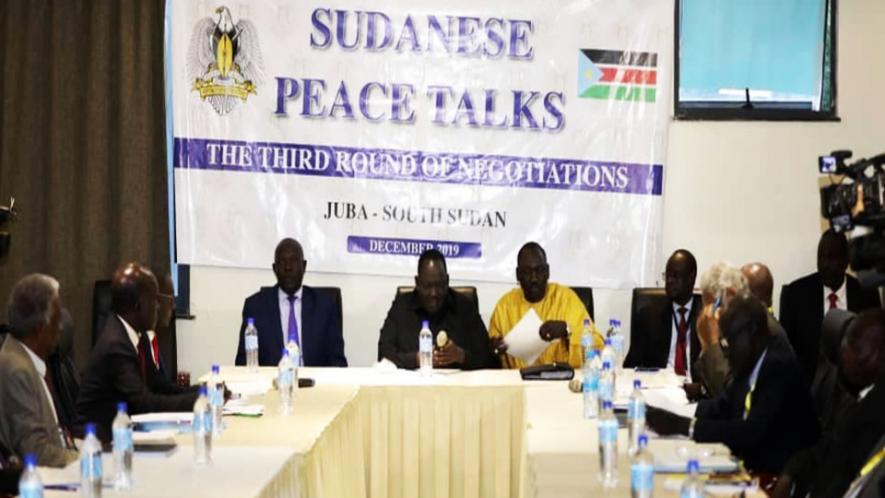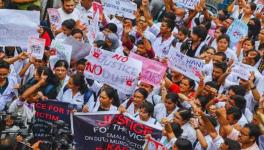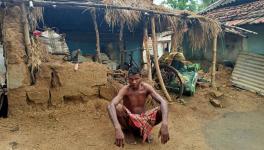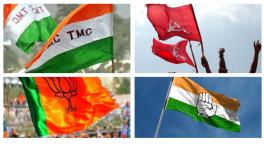In Sudan, Deadline for Peace Agreement is Extended by Three More Weeks

Peace talks between the Sudanese government and rebel groups began in October 2019.
On February 17, Monday, Sudan’s transitional government and the Sudanese Revolutionary Front (SRF) – an umbrella organization of nine armed rebel groups – signed a deal to facilitate the continuation of peace talks for another three weeks.
This is the second time the deadline for the conclusion of peace talks has been extended. The talks seek to put an end to the civil war in South Kordofan, Blue Nile and Darfur – one of the top priorities set before the transitional government. The talks began in South Sudan’s capital city, Juba, in October 2019.
At that time, the transitional government and the SRF had agreed to conclude the talks by December 14. Having failed to reach a final agreement, the deadline was extended to February 14, following which a second extension was agreed upon on Monday.
The parties have so far agreed on a ceasefire and to open humanitarian corridors. They have also agreed on the need to distribute land in conflict-affected areas and facilitate the return of refugees and internally displaced persons to the lands they had to flee due to the civil war. However, the details are yet to be worked out.
Crucial differences remain on the nature of balance of power between States and the center. “Hopefully, this will be the last extension for these talks,” Yasir Arman, SRF’s deputy general secretary, told AFP.
At the meeting where the extension of talks was decided, the transitional government also agreed to the SRF’s demand that once the peace agreement is reached, it be included in the transitional constitution.
Further, “We agreed on the primacy of peace agreements over the constitutional document in case of conflict between them,” said Mohamed Hassan al-Taishi, a member of the transitional government’s highest body, the sovereignty council, in which the military and civilian forces share power equally.
This, however, may cause friction with the ruling civilian coalition called the Declaration of Freedom and Change Forces (DFCF). The DFCF is a coalition of left and centrist political parties that had come together to represent the protest movement which ousted the dictator Omar al-Bashir. The DFCF also forced the military junta which subsequently seized power to make way for a civilian-dominated joint transitional government.
All the civilian members of the sovereignty council, and all the ministers, except those in charge of defense and home affairs, are appointed by this body. 67% of the seats in the legislative council are also to be reserved for the DFCF, according to the constitutional declaration.
The SRF had opposed this declaration on the grounds that they were not part of the negotiations preceding it. It had called for the postponement of the formation of the legislative council until the peace agreement, as it wanted to negotiate its representation in the body. Similarly, the SRF also opposed the appointment of civilian governors until the peace agreement was signed.
The DFCF had initially agreed to the postponement. However, the repeated delays have been accompanied by military members of the sovereignty council expanding their influence on the government. Thus, the civilian ruling coalition is stepping up the pressure on the government to start the formation of the legislative council.
This body can serve to counter the power of military officials in the sovereignty council, and their intervention in tasks accorded to the civilian forces, including the conduct of foreign policy. As per the constitutional document, the legislative council was to be formed within three months of the formation of the sovereignty council. The deadline, accordingly, was on November 21.
This constitutional document lays crucial legal ground for the DFCF to build pressure for the formation of the legislative body. The primacy of final peace agreement over that of the constitutional document may affect the prospects of strengthening the civilian bodies of the government.
The DFCF has sought to reassure the SRF that they will be given appropriate representation in the legislative council, but is pressing on the need to form the body without further delay. The coalition is also pushing forward the appointment of civilian governors to replace the military governors on a transitional basis, with the assurance that the governors will be reshuffled after the peace agreements to include those nominated by the rebels.
While agreeing to extension of the peace negotiations, the DFCF is simultaneously holding talks with the SRF in Juba. These talks are aimed at reaching an agreement on the completion of these two tasks which has been long overdue.
In order to find a balance between the imperatives for a peace agreement and the need to complete transition to a democratic structure under civilian leadership, a six-member committee of the representatives of SRF and DFCF was formed on February 10.
A joint statement after a meeting that morning, where the decision to form such a committee was made, read: “The meeting agreed to forget the past and open a new page through a political agreement to negotiate between them to enhance the joint efforts supporting the peace process and resolve the outstanding political and organizational issues.”
Get the latest reports & analysis with people's perspective on Protests, movements & deep analytical videos, discussions of the current affairs in your Telegram app. Subscribe to NewsClick's Telegram channel & get Real-Time updates on stories, as they get published on our website.
























